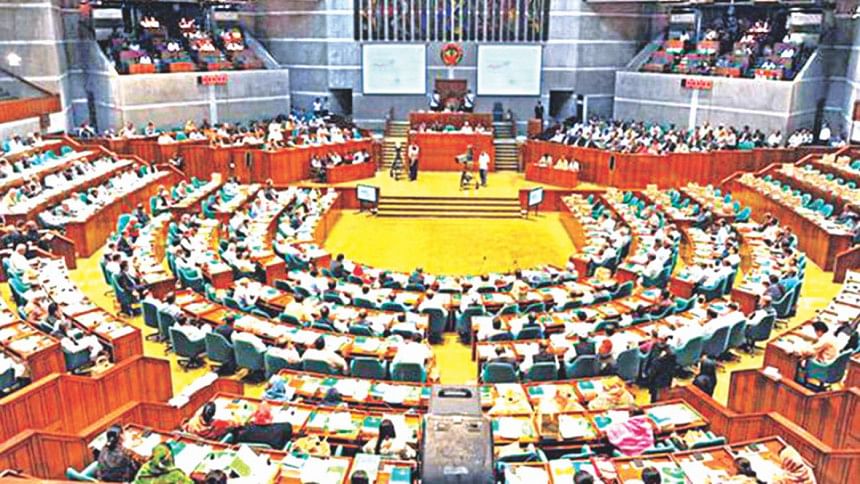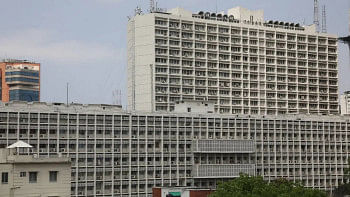Defining the extent of 'Office of Profit'

Article 66 of the Bangladesh Constitution expressly enumerates number of disqualifications to become a member of the parliament or to compete for the respective election. One of the explicit disqualifications enlisted in the article 66 (2) is to 'hold any office of profit in the service of the Republic other than an office which is declared by law not to be disqualified its holder'. That means unless directly exempted by any law, holding any 'office of profit' in the service of republic shall be a disqualification for anyone to become a member of the parliament. The Indian Constitution also contains similar provisions in articles 102 and 191.
The term 'office of profit' is left undefined in both the constitutions of Bangladesh and India, but the only point of contrast between the two countries is that unlike Bangladesh, there is a subordinate legislation in India which defines the term 'office of profit'. Given the vacuum in Indian legal framework, the Supreme Court of India interfered into the issue using its interpretative authority and explained the term elaborately in various cases. For instance, in the Jaya Bachchan case (2006), Indian Supreme Court stated that “an office of profit means a position that brings to the person holding it some financial gain, or advantage, or benefit. It may be an office or place of profit if it carries some remuneration, financial advantage, benefit etc.
It refers to a post under central/state government which yields salaries, perks and other benefits.” In the above mentioned case the Supreme Court disqualified her membership as she drew a monthly honorarium of Rs 5,000, entertainment expenditure of Rs 10,000, plus benefits and allowances from the government. The Supreme Court further reiterated in Shibu Soren v Dayanand Sahay & Ors (2001): “If there is really some gain, its label – 'honorarium' – 'remuneration' – 'salary' is not material – it is the substance and not the form which matters and even the quantum or amount of “pecuniary gain” is not relevant– what needs to be found out is whether the amount of money receivable by the concerned person in connection with the office he holds, gives to him some “pecuniary gain”.
In 1964, the Supreme Court ruled that several factors are considered for determining whether a person holds an office of profit or not such as: “ (i) whether the government is the appointing authority, (ii) whether the government has the power to terminate the appointment, (iii) whether the government determines the remuneration, (iv) what is the source of remuneration, and (v) the power that comes with the position”. In 2015, UP MLAs Bajrang Bahadur (BJP) and Uma Shankar Singh (BSP) were disqualified from the assembly after they were found to be bagging government construction contracts by misusing their position. Overall India has been maintaining a strict approach to this issue as it involves the question of separation of power among the different organs of the state.
However, contrary to India, we don't have many decisions from the Supreme Court of Bangladesh explaining the term 'office of profit', but we do have a subordinate legislation named as- 'The Representation of People Order, 1972', which contains all relevant provisions of disqualifications including an explanation for 'office of profit'. Explanation I, in article 12 of the Order states 'office of profit' means holding any office, post or position in the full-time service of the Republic or any statutory public authority or company in which government has more than 50% (fifty percent) share. The same article also conditions that 3 years has to be elapsed after retirement from the 'office of profit' and such period shall be extended to 5 years in order to qualify for the membership of parliament. The Order also enlists any contractual appointment as well as any contract for providing service to the Republic as a disqualification for becoming member of the parliament.
Now the question arises whether the position of national cricket team's ODI captain shall come within the scope of 'office of profit' as mentioned in our constitution or whether the contractual service provided by the captain comes within the scope of prohibition mentioned in 'the Representation of People Order of 1972'. To find the answer, some relevant information has been assessed below. Bangladesh Cricket Board (BCB) is a regulatory body under the National Sports Council which was established by 'the National Sports Council Act, 1974' and the annual budget of BCB is also approved by the Executive Committee of National Economic Council (ECNEC), though funds are mostly raised through commercial sponsors. BCB employs national cricket team players on contractual basis and the players represent the country at international level. Given the confusing nature of players' terms of service and absence of any earlier SC precedent, there remains a scope for seeking legal clarification from the higher court. After all having a well balanced separation of power within the state free from unwanted influences and potential conflict of interests is pivotal to secure a true people's republic as enshrined in our constitution.
The writer is Lecturer at Department of Law, Uttara University.

 For all latest news, follow The Daily Star's Google News channel.
For all latest news, follow The Daily Star's Google News channel. 



Comments